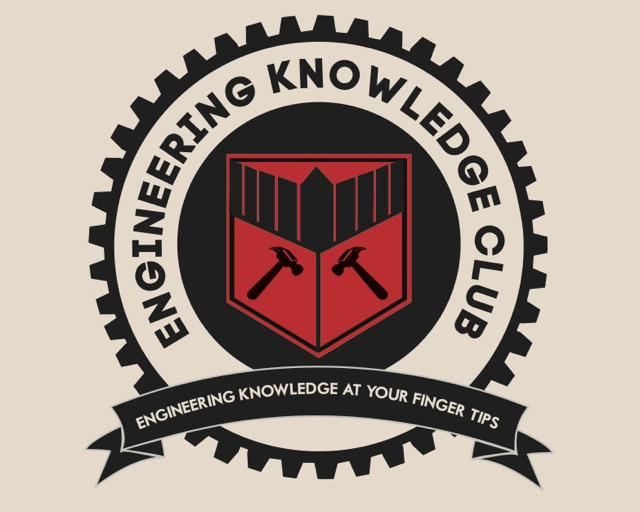

Engineering Knowledge Club Logo by Think Up is licensed under a Creative Commons Attribution-NonCommercial-ShareAlike 4.0 International License.
Permissions beyond the scope of this license may be available at info@thinkup.org.
Almost nine months since we were awarded funding from UCL’s Teaching Innovation fund, Paul Greening and I kicked off ‘Engineering Knowledge Club‘. The idea is to encourage students to develop for themselves the engineering knowledge they need in order to be successful in the field of engineering they want to go into. We have set up a dedicated blog for Engineering Knowledge Club, which describes our aims for the project, so I won’t repeat them here.
But what I will say here is how excited I am about this project. The timing is particularly appropriate as I have been spending most of November co-writing a guide for the Royal Academy of Engineering on experience-led learning in engineering. Many of the ideas discussed in that report we can put in practice in Engineering Knowledge Club, for example:
Student–led learning – so much of the learning that I see happening in civil engineering courses seems to be motivated by grades, which probably stifles curiosity, intrinsic motivation and independence. I strongly believe that if learners were learning about what they were interested in, then they’d be self-motivated, perhaps work harder, and learn more effectively. Engineering knowledge club is about giving students the chance to define and drive their own learning.
Learning based on real-world stimuli – civil engineering is a subject that surrounds us, and so lends itself well to learning by observation. And yet, so much civil engineering education is based on text books, lecture notes and websites. Engineering knowledge club will encourage students to be inspired by, be curious about and learn from the environment which surrounds them.
Reflective learning – people tend to learn better when they think about how they are learning. Over the last two years I’ve experimented at UCL with Paul Greening and at Queens Belfast with Siobhan Cox on using private student blogs for reflective learning. While this has had some success, what’s been missing is students being able to learn from each others’ blog posts. Engineering Knowledge Club will give me the chance to experiment with using a public class blog. This will hopefully help to build a sense of community among the students, and should serve to demonstrate the concept to anyone interested.
Building a community of learning – I don’t feel that students are encouraged enough to support each other in their learning. I believe that a student cohort in which everyone is looking out for each other would be one that learns more. We hope to build a sense of community in Engineering Knowledge Club and be able to see its impact on learning.
We shall see!


Peter Goodhew
The club is an excellent initiative, and I look forward to the publication of the guide. Two comments: In the USA (particularly) local student chapters of professional bodies are quite common and serve both as a knowledge resource and as an “assisted entry” to professional engineer status. I get the impression they tend to be driven by the students themselves, no doubt with advice from staff. This sort of thing seems much weaker in the UK and I wonder why.
The second comment relates to the logo. It seems to me to signal a tremendous lack of imagination (in me as well as everyone else) that in 2013 we fall back on a gear wheel and two (two?!) hammers to signify engineering. What about mechatronics, computing, materials, civil, structural, optoelectronic devices, aerospace …….?
Oliver Broadbent
Hi Peter, thanks for your comment. The approach you describe in the US does sound similar. I can certainly see why it would work to assist the process of becoming a professional engineering. Indeed, one of the ideas we considering was to motivate students by emphasising that this process could help them in their journey through chartership. Motivation is a key issue we are working with here. We are also interested in helping students explore new ways of learning. I’d be interested to hear more about these student chapters, and I will mention it to Gregory Brooks at the University of Texas at Austin, who has been a big fan of Workshed, and who I owe a call!
On the logo – I have to take full responsibility! In somewhat of a hurry, I gave a graphic design intern the brief of creating a logo for engineering knowledge club. She did a great job of creating something on an open brief in a short space of time, but perhaps it is an interesting indicator of engineering from outside the profession. Watch this space… it may change!